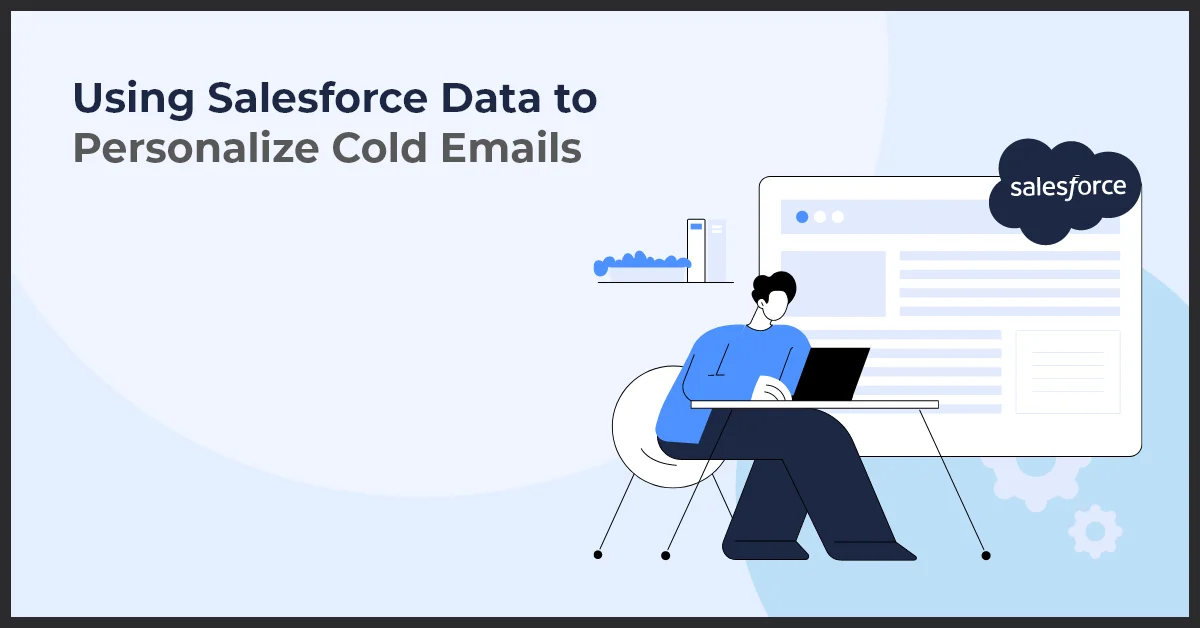Unlock the Power of Magento Integration with Salesforce

Published on: January 8, 2024
Updated on: June 27, 2024
1534 Views
- Salesforce
14 min read
Magento integration with Salesforce can significantly transform your business operations, streamline processes, and enhance customer experience. In today's competitive e-commerce landscape, it has become increasingly important for businesses to connect their online store with effective customer relationship management (CRM) solutions like Salesforce.
Why is Magento Integration with Salesforce Important?
Magento is a widely acclaimed e-commerce platform known for its robust features and flexibility. At the same time, Salesforce is a leading CRM solution empowering businesses to manage and optimize their interactions with customers. Businesses gain an array of advantages by Magento integration with Salesforce.
Benefits of Magento integration with Salesforce:
- Efficient Data Synchronization: Magento integration with Salesforce ensures that critical customer and order information is synchronized in real-time between Magento and Salesforce, eliminating the need for manual data entry and reducing the risk of errors or inconsistencies.
- Enhanced Customer Management: Gain a comprehensive view of customer behavior, purchase history, and preferences, enabling you to personalize marketing campaigns, provide tailored offers, and deliver exceptional customer service.
- Streamlined Order Management: Seamlessly process and manage orders, inventory, and fulfillment across both platforms. Automatically update inventory levels, track shipping, and manage returns, ensuring efficient order processing and minimizing customer dissatisfaction.
- Improved Sales Performance: Benefit from the power of Salesforce's sales tools, such as lead management, opportunity tracking, and pipeline reporting, while leveraging Magento's e-commerce capabilities to boost sales, drive conversions, and track performance.
- Advanced Analytics and Reporting: Gain valuable insights into your business performance with integrated analytics and reporting capabilities. Access real-time sales data customer behavior data, and generate comprehensive reports to make data-driven decisions and drive business growth.
Magento integration with Salesforce maximizes efficiency. It empowers businesses to deliver exceptional customer experiences, drive sales, and achieve sustainable growth in the ever-evolving e-commerce landscape.
Understanding Magento and Salesforce
A. Overview of Magento platform
Magento is a powerful e-commerce platform that allows businesses to create and manage online stores. It offers many features and functionalities, making it an ideal choice for e-commerce integration.
- Flexible and scalable: Magento allows businesses to tailor their online stores to meet their needs. It also offers scalability, ensuring the platform can handle increased traffic and sales.
- Rich customer experience: With Magento, businesses can create visually stunning and user-friendly online stores. The platform offers various customization options, allowing businesses to create unique and engaging customer shopping experiences.
- Advanced product management: Magento provides robust product management capabilities, enabling businesses to manage their products, inventory, and pricing efficiently.
- Secure and reliable: Security is a top priority for Magento. The platform is built with secure coding practices and offers various security features to protect customer data and transactions.
B. Overview of the Salesforce platform
Salesforce is a leading customer relationship management (CRM) platform that allows businesses to manage their sales, marketing, and customer service activities. It offers a wide range of features and functionalities, making it an essential tool for CRM integration.
- 360-degree customer view: Salesforce provides businesses with a comprehensive view of their customers, enabling them to understand better and engage with them. It centralizes customer data, allowing businesses to track interactions and provide personalized experiences.
- Sales and marketing automation: Salesforce offers powerful tools that streamline sales and marketing processes. Businesses can automate tasks, track leads, and nurture customer relationships, ultimately increasing efficiency and revenue.
- Data-driven insights: With Salesforce, businesses access valuable insights and analytics. The platform provides customizable dashboards and reports, allowing businesses to track performance, identify trends, and make data-driven decisions.
- Seamless collaboration: Salesforce fosters collaboration within teams and departments. It offers features like Chatter, which allows for real-time communication and sharing of information, ensuring everyone stays on the same page.
Data Integration Through Magento integration with Salesforce
A. Importance of data synchronization
Data synchronization is crucial for businesses integrating Magento and Salesforce. It ensures both platforms have consistent and up-to-date information, allowing seamless operations and better decision-making.
B. Customer data synchronization
1. Methods for syncing customer data
There are several methods to sync customer data between Magento and Salesforce. One popular option is to use a third-party integration tool that connects both platforms and facilitates automatic data transfer. Another approach is developing a custom integration solution tailored to the business's needs.
2. Benefits of seamless customer data integration
When customer data is seamlessly integrated through Magento integration with Salesforce, businesses can better understand their customers, personalize experiences, and improve customer satisfaction. It also streamlines processes like order management, customer support, and marketing campaigns.
C. Product catalog management
1. Syncing product information between Magento and Salesforce
Syncing product information between Magento and Salesforce is essential for consistent product catalogs, accurate inventory management, and streamlined sales processes. Through Magento integration with Salesforce, businesses can ensure that product details, pricing, and availability are consistently updated.
2. Strategies for effective product catalog management
To ensure effective product catalog management, businesses should establish a clear workflow for updating and synchronizing product information. It may involve assigning dedicated teams for catalog management, setting up regular data syncing processes, and utilizing automation tools for efficient data transfer.
Salesforce Connectors for Magento
Salesforce connectors are essential tools that enable seamless Magento integration with Salesforce, allowing businesses to streamline their operations and enhance customer experience. These connectors bridge the two platforms, facilitating data exchange and ensuring a synchronized workflow.
A. Understanding Salesforce connectors
Salesforce connectors are powerful plugins or extensions that enable effective communication and data synchronization between Magento and Salesforce. These connectors establish a secure connection, ensuring that both platforms work harmoniously to achieve business goals.
B. Features and benefits of Salesforce connectors for Magento
Salesforce connectors offer a wide range of features and benefits that greatly enhance the integration process:
- Real-time data synchronization: Salesforce connectors ensure data is seamlessly transferred in real-time after Magento integration with Salesforce. It helps businesses stay updated with the latest information, such as inventory levels, customer data, and order details.
- Automated workflows: With Salesforce connectors, businesses can automate various workflows, such as order processing, inventory management, and customer support. It improves efficiency and reduces manual errors.
- Unified customer view: Salesforce connectors consolidate customer data from both platforms, providing businesses with a comprehensive view of their customers' interactions, purchase history, and preferences. It enables personalized marketing and efficient customer support.
- Inventory management: Salesforce connectors enable seamless synchronization of inventory data between Magento and Salesforce, ensuring accurate stock levels and preventing overselling or out-of-stock situations.
- Streamlined order management: Salesforce connectors facilitate the smooth transfer of order information between Magento and Salesforce, enabling businesses to efficiently process and track orders, manage returns, and provide timely updates to customers.
C. How Salesforce connectors facilitate seamless integration and data exchange
Salesforce connectors simplify the integration process by providing pre-defined mapping and configuration options, making connecting Magento and Salesforce without extensive technical skills easier. These connectors establish a secure connection, ensuring the confidentiality and integrity of data during the exchange process.
With Salesforce connectors, businesses can establish a seamless data flow between Magento and Salesforce, eliminating redundant manual data entry and reducing the risk of errors. It enables businesses to focus on growth, leveraging the combined power of Magento integration with Salesforce to drive sales, improve customer service, and make data-driven decisions.
Magento Integration with Sales and Marketing Automation
A. Importance of sales and marketing automation
Sales and marketing automation has become crucial for businesses to streamline their processes and maximize their revenue potential. Businesses can save time and resources by automating repetitive tasks and implementing intelligent workflows while improving customer experiences and increasing conversions.
B. Integration possibilities for Magento integration with Salesforce
The possibilities are endless when it comes to Magento integration with Salesforce. This integration allows businesses to connect their online store seamlessly with their sales and marketing activities, gaining a holistic view of their customers and buying behaviors.
- Real-time syncing of customer and order data between Magento and Salesforce
- Automatic creation of leads, contacts, and opportunities in Salesforce based on Magento interactions
- Visibility into customer activities on the Magento website within Salesforce
- Effective tracking of marketing campaigns and their impact on sales
C. Leveraging automation to boost sales and marketing efforts
With the help of Magento integration with Salesforce, businesses can leverage automation to boost their sales and marketing efforts. With real-time data and insights, they can create targeted marketing campaigns, personalize customer experiences, and ensure timely follow-ups with prospects and existing customers.
- Automated lead nurturing and scoring based on customer interactions on the Magento website
- Triggered email campaigns based on specific customer behaviors and preferences
- Automated order follow-ups and cross-selling/up-selling opportunities
- Efficient management of customer support and post-sale processes
Order Management and API Integration
A. Order management in Magento
Magento's order management system is crucial in maintaining smooth operations and customer satisfaction. It allows businesses to efficiently handle their sales processes, including order creation, tracking, fulfillment, and returns. With Magento's powerful order management capabilities, businesses can streamline operations and enhance customer experience.
B. Integration of order management with Salesforce
Businesses can further enhance their sales processes and customer interactions by integrating Magento's order management system with Salesforce. Magento integration with Salesforce allows for seamless synchronization of order data between Magento and Salesforce, ensuring that all teams within the organization have real-time access to accurate and up-to-date information. Such integration enables businesses to provide customers with a consistent and personalized experience while improving internal collaboration and efficiency.
C. Benefits of API integration for seamless data transfer
API integration between Magento and Salesforce enables businesses to achieve seamless data transfer and communication between the two platforms. It eliminates the need for manual data entry or multiple systems, reducing the chances of errors and saving valuable time. With Magento integration with Salesforce, businesses can synchronize order information, customer details, inventory data, and other relevant data points in real-time. It ensures that all departments within the organization have accurate and consistent information, enabling them to make informed decisions and provide exceptional customer service.
Data Migration and Customization/Extension Development
Data migration is crucial in Magento integration with Salesforce. It involves moving data from your Magento platform to Salesforce, ensuring a seamless transfer of information. Customization and extension development are essential for tailoring the integration to your business requirements.
A. Understanding the data migration process
In order to effectively migrate data from Magento to Salesforce, it is important to have a clear understanding of the process involved. Data migration typically includes extracting data from your Magento database, transforming it into a format compatible with Salesforce, and loading it into the system. Ensuring data accuracy, integrity, and consistency is crucial during the data migration process. It ensures the transferred data is complete, error-free, and structured to align with the Salesforce platform.
B. Steps involved in Magento integration with Salesforce
The process of data migration from Magento to Salesforce can be broken down into several key steps:
- Identify the data to be migrated: Determine which data from your Magento platform needs to be transferred to Salesforce. It can include customer information, product details, sales orders, and more.
- Map data fields: Map the data fields in Magento to their corresponding fields in Salesforce. It ensures data is accurately transferred and properly mapped within the Salesforce system.
- Data extraction: Extract the identified data from your Magento database in the desired format for migration.
- Data transformation: Convert the extracted data into a format compatible with Salesforce. It may involve data cleansing and formatting.
- Data loading: Load the transformed data into Salesforce using appropriate tools and methods, such as Salesforce Data Import Wizard or API integration.
- Data validation: Validate the migrated data in Salesforce to ensure its accuracy and integrity.
C. Importance of customization and extension development in the integration process
Customization and extension development are key aspects of Magento integration with Salesforce. While the integration provides a foundation for connecting the two platforms, customization and extension development allow you to tailor the integration to your business needs.
Customization involves modifying features, interfaces, and functionality within Magento and Salesforce platforms. It ensures the integration aligns with your business processes, workflows, and branding requirements. Customization can include creating custom field workflows or building custom applications to enhance the integration.
Extension development, on the other hand, involves extending the capabilities of Magento and Salesforce by integrating additional features and functionalities. It can be achieved through third-party or custom extensions tailored to your business requirements. Extensions can enhance the integration by adding new functionalities, such as advanced reporting or inventory management.
By leveraging customization and extension development, you can create a seamless and enhanced Magento integration with Salesforce, maximizing the benefits of the integration for your business.
Reporting and Analytics on Integrated Magento and Salesforce Platform
Reporting and analytics are crucial components of any successful business strategy. With Magento integration with Salesforce, businesses can leverage the powerful reporting and analytics capabilities the Salesforce platform provides to gain valuable insights about their customers, products, and sales.
A. Overview of reporting and analytics capabilities in Salesforce
With Salesforce, businesses can access various reporting and analytics features to track and analyze key metrics. These features include customizable dashboards, reports, and scorecards that provide real-time insights into sales performance, customer behavior, and product trends.
- Customizable Dashboards: Salesforce offers customizable dashboards that allow businesses to display relevant data and KPIs in a visually appealing format. Users can create multiple dashboards for different teams or roles, ensuring everyone can access the necessary information.
- Reports: Salesforce enables businesses to create detailed reports based on specific criteria, such as sales volume, customer demographics, or product categories. These reports can be scheduled to run automatically, ensuring that businesses can always access up-to-date information.
- Scorecards: Scorecards visually represent performance metrics, allowing businesses to track progress toward goals and identify areas for improvement. These scorecards can be customized to align with specific business objectives.
B. Utilizing reporting and analytics to gain insights about Customers, Products, and Sales
Magento integration with Salesforce enables businesses to gather comprehensive data about their customers, products, and sales. By leveraging Salesforce's reporting and analytics capabilities, businesses can uncover valuable insights to drive strategic decision-making.
- Customer Insights: Salesforce allows businesses to analyze customer behavior, demographics, and purchase patterns. This information can be used to create personalized marketing campaigns, improve customer experiences, and identify potential upsell or cross-sell opportunities.
- Product Analysis: With Magento and Salesforce integration, businesses can analyze product performance, inventory levels, and pricing trends. It enables businesses to optimize product offerings, identify top-selling items, and make data-driven decisions about pricing and promotions.
- Sales Performance: Salesforce provides businesses with a comprehensive view of their sales performance, including revenue, sales team productivity, and win rates. It enables businesses to identify top-performing sales channels, optimize sales processes, and allocate resources effectively.
C. Importance of data-driven decision-making in maximizing business growth
Data-driven decision-making is essential for businesses looking to maximize growth and stay ahead of the competition. By integrating Magento and Salesforce and utilizing their reporting and analytics capabilities, businesses can make informed decisions based on real-time data.
Using data to drive decision-making allows businesses to:
- Identify and capitalize on market trends and customer preferences
- Optimize marketing campaigns to target the right audience
- Improve operational efficiency and customer satisfaction
- Identify areas for growth and expansion
- Make informed decisions about pricing, promotions, and product offerings
By harnessing the power of reporting and analytics on the integrated Magento and Salesforce platforms, businesses can unlock valuable insights to drive business growth and success.
Conclusion
Magento integration with Salesforce offers numerous benefits for businesses looking to streamline their e-commerce and CRM operations. Businesses can seamlessly connect these powerful platforms to enhance their sales, marketing, and customer service efforts.
Throughout this content, we explored the different aspects of Magento integration with Salesforce. We discussed the importance of understanding both platforms and the potential for data integration. We also highlighted the role of Salesforce Connectors in facilitating the integration process.
Additionally, we delved into the significance of Magento integration with sales and marketing automation and its impact on order management and API integration. We touched upon the essential aspects of data migration and customization/extension development for a successful integration. Moreover, we emphasized the reporting and analytics capabilities of a seamlessly integrated Magento and Salesforce platform.
Recapping the benefits of Magento integration with Salesforce, businesses can experience enhanced data synchronization, improved sales and marketing effectiveness, increased customer insights, and streamlined workflows. Furthermore, a seamless and integrated platform is vital for successful e-commerce and CRM operations. Leveraging the features and capabilities of both Magento and Salesforce cohesively allows businesses to provide exceptional customer experiences and drive growth.In conclusion, Magento integration with Salesforce is a highly advantageous strategy for businesses seeking to optimize their e-commerce and CRM operations. By embracing this integration, businesses can unlock new opportunities, improve efficiency, and achieve their goals in today's competitive marketplace.



